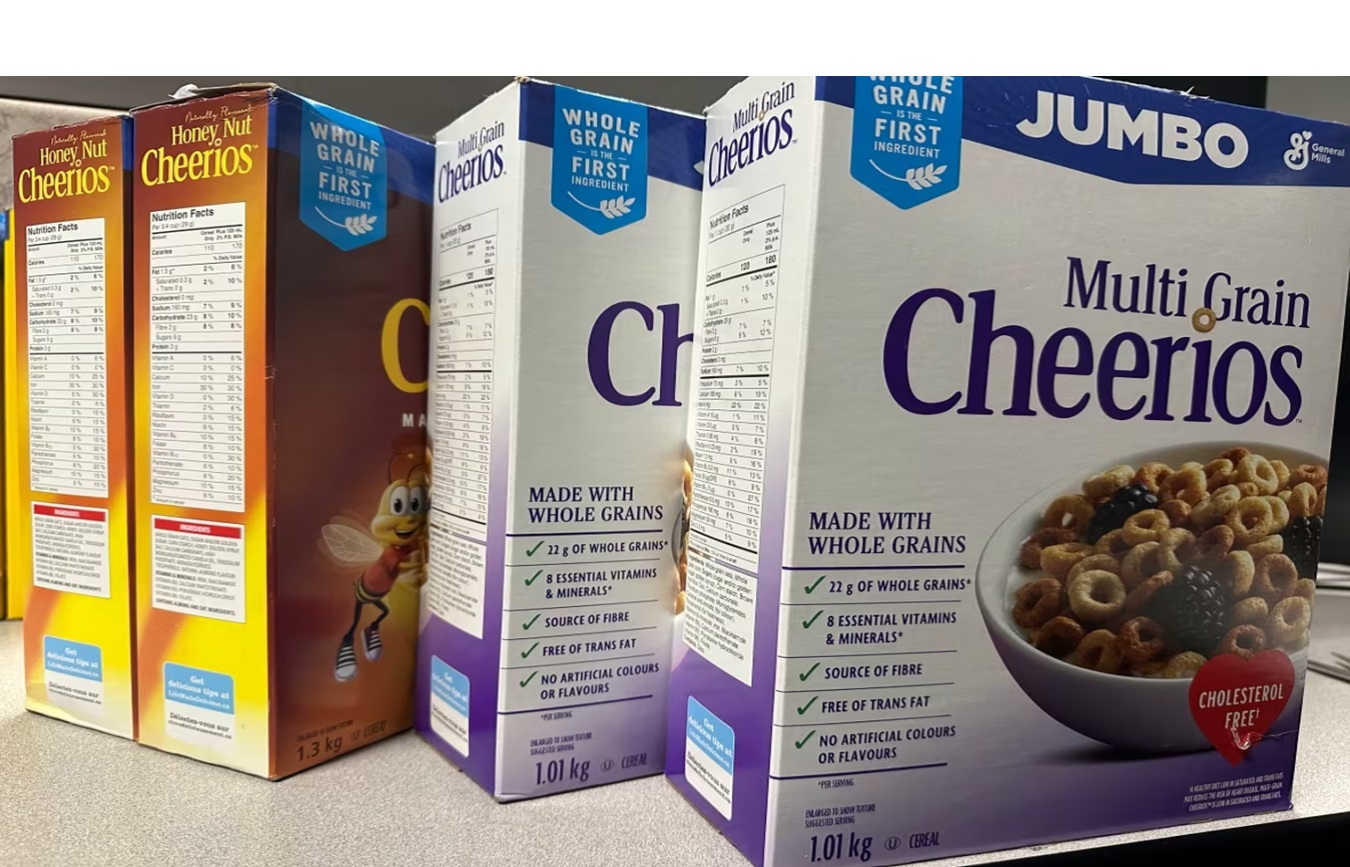
On Monday, CBC News conducted a visit to a prominent grocery store in Toronto, discovering that the honey nut and multi-grain jumbo two-packs on the shelves lacked clear indications that the weight specified on each box represented the combined total weight of both boxes. The observation raises concerns about transparency in product labeling. (Sophia Harris/CBC)
Several Ontario shoppers have recently discovered discrepancies between the labeled weight and the actual weight of certain products, raising concerns about misrepresentation and potential violations of labeling regulations. In an investigation by CBC News, two cases involving mislabeled Cheerios and underweight Loblaws-brand No Name potato chips were examined.
General Mills, the manufacturer of Cheerios, acknowledged a packaging error in its honey nut and multi-grain jumbo two-packs of Cheerios breakfast cereal. The weight printed on each box was found to be double the actual amount, and these flawed packs have been available in Canadian stores for over four months.
Food industry consultant Walter Dullemond emphasized the misleading nature of such labeling, stating that it violates laws against deceptive labeling. General Mills, in response to CBC News inquiries, pledged to have the correct packaging on store shelves later this month. However, a consumer who reported the issue back in July expressed dissatisfaction with the delayed corrective action.
The multi-grain Cheerios packaging discrepancy involves a twin pack with each box labeled as weighing 1.01 kilograms, but actual weighing revealed each box contained just over 500 grams of cereal. The total weight on the label represented the combined weight of the two boxes, a detail missing from the packaging, violating Canadian Food Inspection Agency (CFIA) regulations.
While General Mills insisted the issue was an isolated incident, CBC News found these mislabeled jumbo packs still on shelves in major Toronto grocery stores. The CFIA is currently investigating the matter.
In a separate incident, Loblaws-brand No Name potato chips faced scrutiny as two TikTok videos showed unopened bags weighing less than the labeled amount. One video demonstrated a bag labeled as containing 200 grams of chips weighing 132 grams. Another video showed a bag labeled 200 grams weighing only 103 grams.
Loblaws Companies, the retailer of No Name products, reached out to the customers and initiated an investigation. The company acknowledged the rarity of such occurrences but recognized that the final product quality did not meet expectations. The affected customers were offered compensation, including loyalty points, but one customer declined, expressing dissatisfaction with the response.
Both cases highlight concerns about misrepresentation, customer frustration, and potential violations of labeling regulations. The CFIA emphasized that companies must ensure their products comply with Canada's labeling regulations, and violations could result in relabeling product recalls, and fines.















